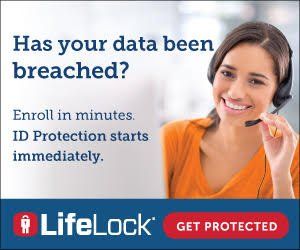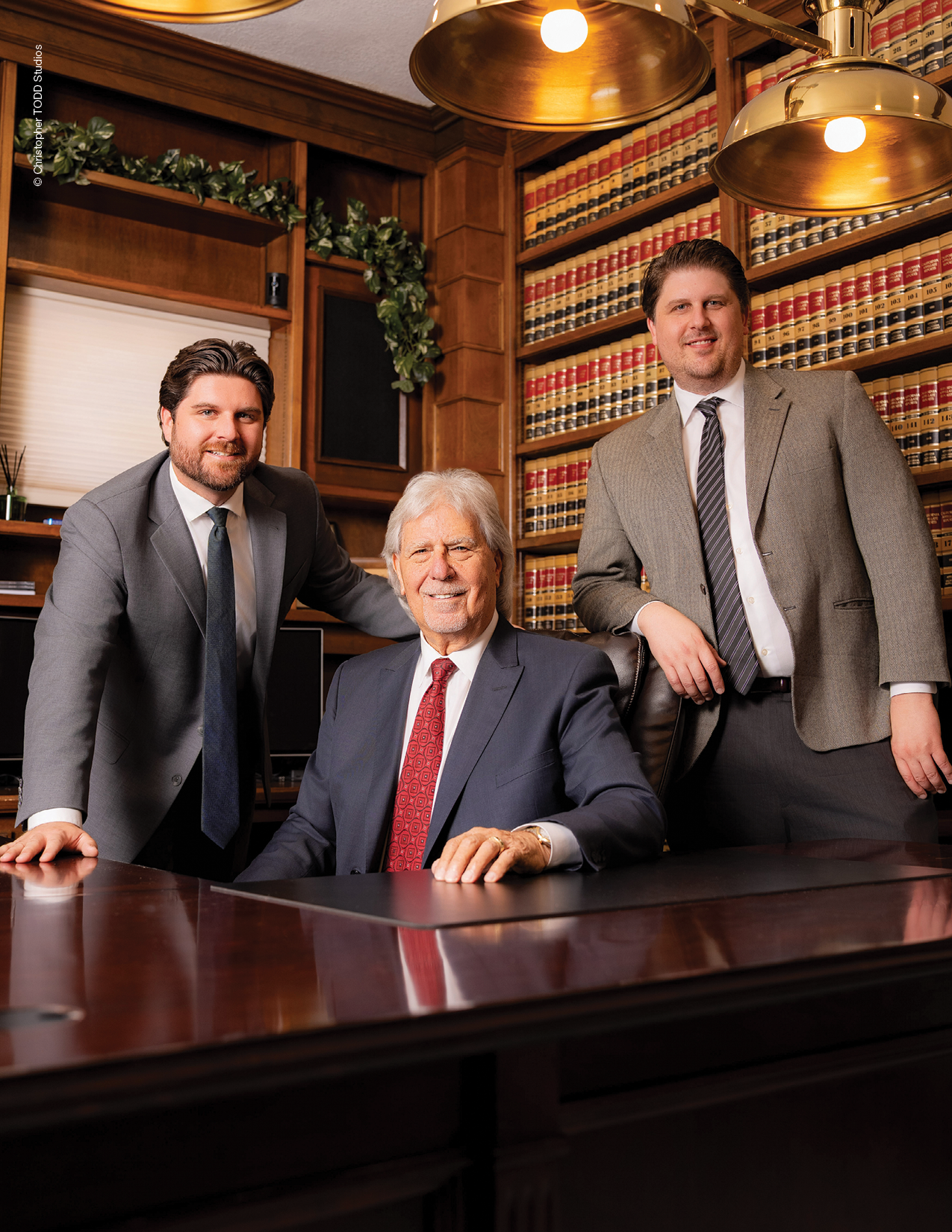Stephen Fairley, founder of the Rainmaker Institute and mentor to thousands of attorneys, passed away on October 5, 2020 after a battle with cancer. Despite his ill health in the last few months of his life, Stephen dedicated himself to helping attorneys navigate the COVID-19 pandemic, embodying his passion for helping lawyers achieve a Lifestyle Law Firm®. His legacy will live on through the company he built and the team he assembled, as they continue to provide proven marketing solutions to help attorneys grow their law firms. Learn more at www.therainmakerinstitute.com.
How to Generate New Law Firm Clients Using Speaking and Seminars
According to a national survey, the number 1 fear people have is speaking in public. Fear of dying is ranked number 7. So just remember when you attend your next funeral that more people would rather be in the coffin than giving the eulogy.
I realize speaking is not for everyone, but if you enjoy speaking or educating people in a group, then speaking and seminars can be one of the best ways to grow your practice. There are very few practice areas I can think of whose marketing efforts would not benefit from participating in some form of education-based seminars or presentations. Giving a seminar or presentation can give you massive credibility, if it’s done correctly. It is also a proven lead generator, if the follow-up is efficient.
For those litigators and trial attorneys, giving a seminar is old hat. You educate your juries on a regular basis and often some of the best public speakers I’ve seen are the trial attorneys. For the rest of us, there are many options to select from. Here are seven common ways you can implement speaking to generate more clients for your law firm:
- Give a public seminar or presentation
- Give a private, client-only seminar in your office
- Give an after-dinner presentation to a group of clients brought together by one of your referral partners
- Give a presentation over a conference bridge line (teleseminar or webinar)
- Be one of the experts on a panel with affiliated professionals (a banker, another attorney, a CPA or financial advisor)
- Give a keynote speech to a trade association
- Be the moderator/facilitator of a panel discussion
There are three basic types of seminars you can participate in:
Wholesale Seminars
This is where you work with a referral partner who sets up a meeting with his or her existing clients and you speak to their clients and educate them about what you do. A common example of this is when an estate planning attorney works with a local financial advisor and speaks to the advisor’s clients on asset protection strategies.
One of our estate planning clients used this type of seminar very successfully when he teamed up with a well-known certified financial planner. The advisor had a large client base and they spent a few thousand dollars each month on promoting the events via ads in local newspapers. They held most of the seminars for two hours on a Saturday morning and usually had 30 to 60 people show up. Each person spoke for about an hour. We helped our client implement a strong follow-up program and by the second event he was signing up 30-40% of the attendees for a free estate planning consultation! He was able to sign up over 60% of those people as new clients with an average fee of $3,500. When you do the math, if they only had 30 people show up per event and only 30% of them signed up for a free consult (9 people) and he closed 60% (that’s 5 new clients) at $3,500 each, that means that particular seminar was worth $17,500 in new work for the firm. Now multiply that by one to two seminars per month and you can quickly see how this can add up.
Retail Seminars
This is where you set up a public seminar (this can be free or paid) and you invite people to attend and listen to your presentation. For example, a small business attorney can invite local business owners to attend a half-day seminar on common legal issues faced by growing companies. I’m not sure why, but many attorneys seem to do this kind of seminar for free. I’m more in favor of charging a reasonable fee, as long as you are going to provide good content for attendees. This not only keeps out the tire kickers and your competitors, but also generally attracts a more serious person to your event. A retail or public seminar is usually the most expensive to conduct because you must market them heavily to generate enough attendees to make it worth your while. If you select to conduct retail seminars I recommend you either do a series (perhaps one topic each quarter) or you hold the same seminar multiple times per month or year. This is the model we use for our Rainmaker Retreat two-day law firm marketing boot camps for attorneys. We hold the same event 10-12 times per year across the country.
Referral Partner Seminars
This kind of seminar involves speaking to a group of potential or existing referral partners in a group setting. For example, you set up a meeting of CPAs and speak to them about how to generate cross-referrals with your law firm and how the two professions can work seamlessly together to better serve the client. Alternatively, you go to your local CPA society and offer to give a seminar at an upcoming meeting about a topic of interest to CPAs. As someone who makes their living from speaking, I know it can be a difficult, yet rewarding form of marketing. Yet, I always have attorneys come up to me afterwards and say something like this, “I gave a speech once and I didn’t get any new business from it.” Well, if you find yourself among the skeptics, here are some critical law firm marketing tips to remember so you can achieve better results from your speaking and presenting efforts.
Tip 1: Only Speak to Decision Makers
The first important tip is to always speak to the right group, and the right group are decision makers, not gate keepers! Make sure you get in front of the right group—people who can either refer you clients or who are highly likely to need, want and be able to afford your services. You can best accomplish this by asking the following questions:
- What is your average attendee like?
- What are the typical job titles of attendees?
- What is the size of the average attendance?
- What percentage of your usual attendees are
decision makers? - What kinds of topics have had the best turnout?
- Who has recently spoken to your group and what did they speak about? How did that go?
Tip 2: Educate Your Audience
Make sure your talk is about something they care about. Make it educational. Do not stand up there and spout legal jargon and legal theory or sections and codes because that’s not what people want, unless your audience is other attorneys. Most audiences want practical, useful information they can take away and immediately implement.
Give them lots of practical, useful information that will help them. You may say, “Well, I don’t want to give away the store. I don’t want to give them so much information that they can do it themselves.” Please understand, if you could give them enough information where they could do it themselves, the people who actually would do it for themselves and not hire you are not good prospects for you.
You want to target the people who have the money to hire an attorney and do not want to do it for themselves because they either understand the risks of doing so or simply do not have the time, energy, effort or expertise needed to successfully complete the task. You do not want to hire tire kickers or “do it yourself-errs” because they typically will only hire you if you have an absolutely ridiculously low price. At the Rainmaker Retreats, we actually follow the opposite principle. We purposefully try to overwhelm our audience with so much practical, useful, step-by-step information. Why? Because we want them to walk out of the room with so many great ideas that they don’t know where to start so they will turn to us and hire us to implement a proven law firm marketing plan for them.
You must recognize that not everyone in every audience is in your target market and you need to qualify them as much as they qualify you! You want to ensure they need you, they want you and they can afford your prices. If you don’t want to attract “yellow page clients” then don’t charge yellow page prices.
Tip 3: Obtain All the Attendees’ Contact Information
Ideally, you want the attendees’ contact information before they ever come to your event. If you are speaking for an association, simply ask for it (be specific and ask for their first and last name, email and phone in an excel file), sometimes they will give it to you and other times they won’t. Either way, have a plan for obtaining the attendees’ contact information at your presentation. If the conference organizer will not give it to you, simply do a giveaway for a prize. You can try to be a little creative in your giveaways without going overboard like a bestselling book, a gift card to a local restaurant, a digital camera, a set of golf clubs, a coupon for a massage, tickets to a play at a theater, or a nice bottle of wine. Simply have them pass their business cards to the front or pass out 3×5 cards and have them fill out their full name, phone and email address and pass it to the front. Do a drawing for the prize at the end of your seminar. Obtaining their contact information is critical for success in speaking and seminar marketing.
Tip 4: The Fortune Is in the Follow-up
If you are a regular reader of this column, you have heard me say this before: the fortune is in the follow-up! The number one reason why lawyers don’t achieve great results from speaking and seminars is because they don’t have a written follow-up system. You must develop a follow-up strategy before your talk. Let’s say your follow-up strategy is a series of emails, phone calls and maybe a letter or postcard. Your follow-up system would include 4 emails, 3 phone calls and 1 letter.
- Email 1 would be sent within 24 hours post-seminar. It would be a thank you email with an offer for a free consultation, a special report or an audio CD.
- Phone Call 1 would be made by your staff and would be made within 24 hours post-seminar. The call would be to thank them for attending and make the same free offer that’s made in the email.
- Letter 1 would be sent out the next day (they should receive it within 3 days if they are local) and the letter would repeat what you have written in the email.
- All of this would happen in the first 24 hours after the seminar. Some of you will question if that’s too aggressive an approach. Let me assure you, it is not. A quick follow-up system like this demonstrates a high level of professionalism and commitment to your attendees. It tells them that you care about them and most of them will be impressed that you followed up so quickly.
- Email 2 is sent three to five days after the event. Remind them about the seminar they attended and invite them to sign up for a consultation or your newsletter.
- Email 3 might offer a brief tip about the topic you spoke about: top 10 tips or recommended resources, etc.
- Every person should be followed up with at least three phone calls before you stop trying to reach them.
- Every attendee should receive at least 5-7 emails and 1-2 printed letters from your law firm. If you use this kind of follow-up system, you will find significantly better results from your seminars and marketing efforts. Make sure you have a follow-up system in place before your presentation and make sure you have your staff doing most of the work. Your focus is on becoming a powerful Rainmaker for your law firm, serving your clients with excellence and bringing in new clients.








